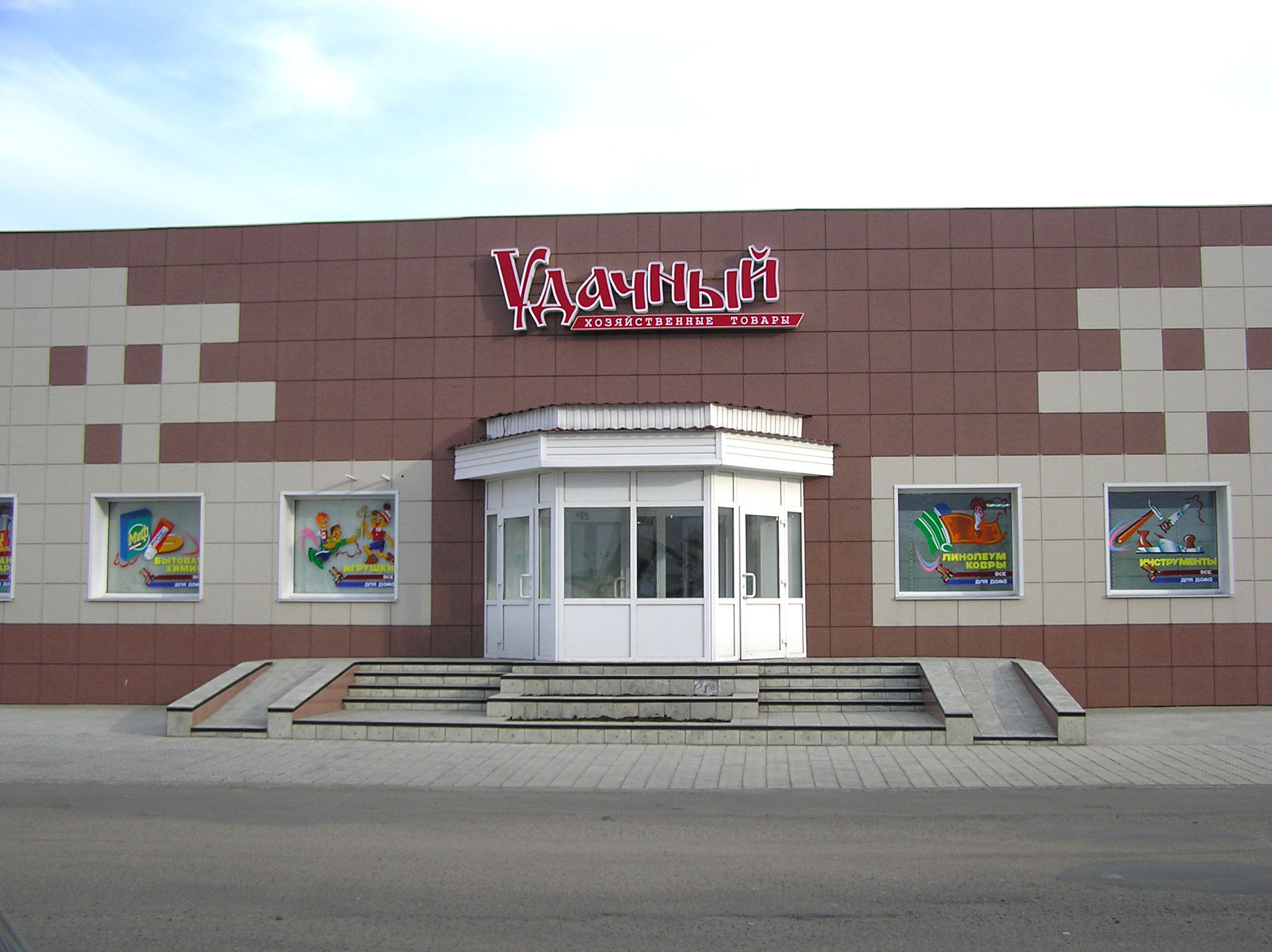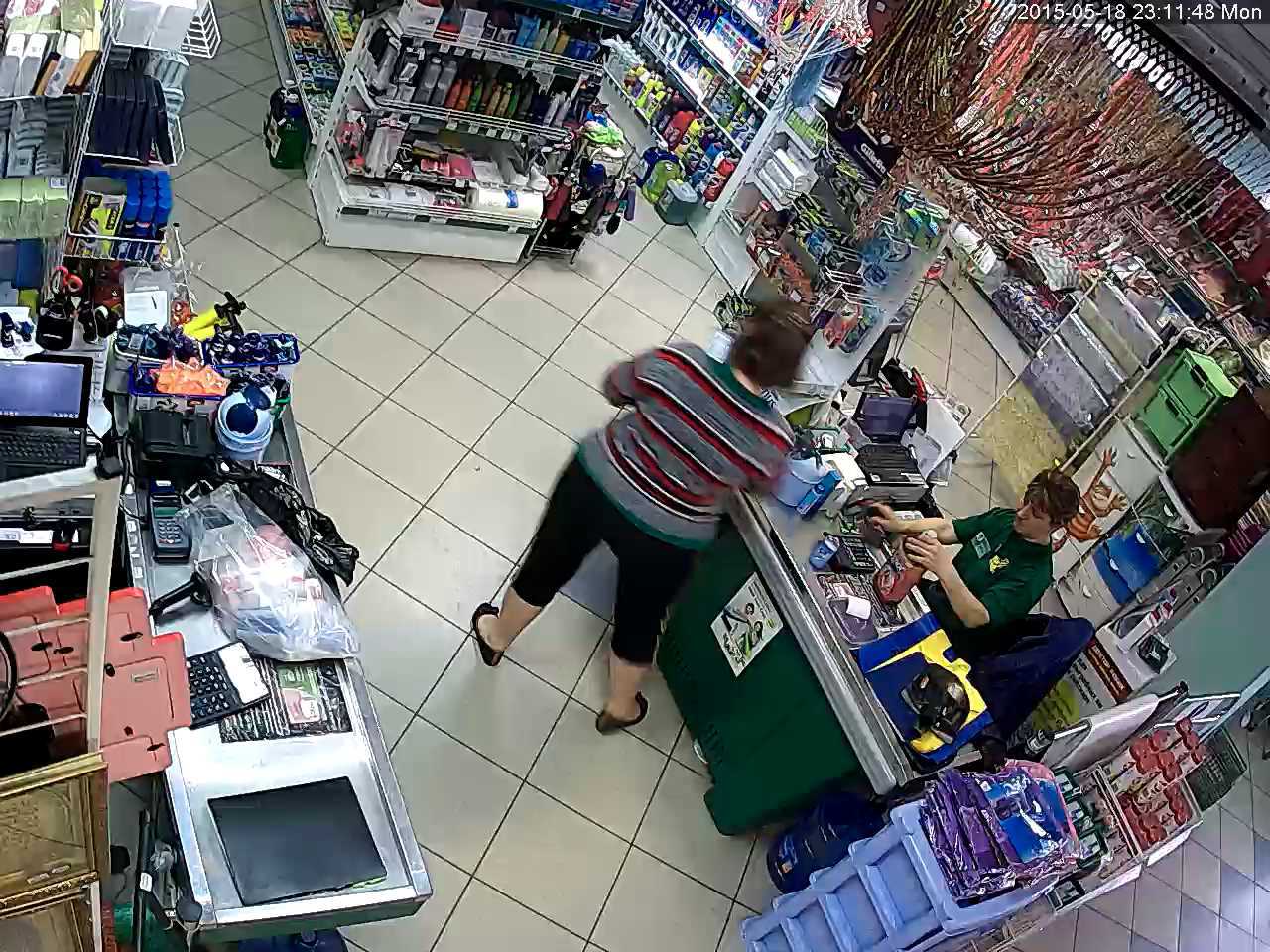Where do the steppe clouds begin, or the accounting of the store in Kulunda
What do residents of the metropolitan region represent when they say “the nature of the Altai Territory”? Most probably think about high mountains, immense forests and completely unearthly landscapes.
However, Altai is not only mountains. The relief is replaced by steppes, ribbon forests and salt lakes. The Kulunda Plain, located in the south of Western Siberia, in the interfluve of the Ob and the Irtysh, is far from the resort that many are used to seeing. Continental climate, sudden changes in temperature, dry summer and cold winters. The role of the recreation area here is performed by salt lakes, which have become one of the symbols of the region.

Although it looks like the outskirts of the world, here, on the border with Kazakhstan, there is a stable 3G connection and active people who love their land and want to develop it.
My wife and I founded our first household goods store in Kulunda in 1995. Over time, the network has grown a bit, covering the neighboring villages.
It is worth explaining what a shop in Siberia. There is practically no industry here, and the distances are huge. Logistics under such conditions becomes a non-trivial task, especially with a nomenclature of 20K items.

')
The first major retail in Kulundu entered only in 2008, but immediately changed the local ecosystem. New supermarkets offered discount replacement cards and worked on modern cash register software.
Faced with customer churn of around 20% in six months, we conducted a simple survey and found out that it is the loyalty bonus program that is the decisive factor for our dear customers. And we, in turn, worked “in the old manner” using a primitive cash register.
In addition, cash accounting, logistics and inventory management went through ordinary Excel. Naturally, it was difficult to scale and to control the business processes in general.
It was decided to switch to accounting in electronic form. Our first program was 1C. A company with settings from a local programmer (I also add that exactly 1 1C programmer provides services in Kulunda). We honestly tried to figure it out, transplanted cashiers from calculators for monitors, and for some time turned a blind eye to the malfunctioning of the program.
Most of all, the stability of the program was distressing: to eliminate medium and even small bugs, I had to install update after update, and each update was loading the entire system. Plus, our programmer was never able to make a working bonus program, and in part for the sake of it all was started.
A little later, I read about cloud technologies in retail, which not only in the West, but also in Russia, have already gained their fans. Disappointed with customizable and personalized 1C, I wanted to try a service where everything is simple and ready to go.
Initially, three services were selected for further testing (My Warehouse, Big Bird and Simple Business). But not one of them could provide the functionality that we needed:
1. Accounting for residual goods
2. Warehousing and inventory
3. Retail Sales and Returns
4. Money and cash discipline
5. Work with weight goods (for the future)
6. Marketing programs (coupons, gift certificates)
7. Loyalty program with bonuses
I singled out those points that, in my opinion, were important, but were not implemented in one way or another with the companies described. As I already said, for us one of the incentives for automation was the arrival of network retailers in the region and the need to introduce a bonus program.

A small lyrical digression. Our survey showed that customers choose a loyalty bonus program consciously, ignoring discount offers. This seems paradoxical, but customers want to accumulate bonus points, even despite the fact that prices in network markets are an order of magnitude higher than ours.
Therefore, we had to continue the search for a cloud service with support for bonus programs. As a result, the choice was made in favor of workabox (it seems that I read about this little-known project in one of the forums). This is a similar solution, only with marketing support.
The first serious difficulty in launching the bonus program was the need for a permanent Internet connection. Cash desk workabox supports offline mode, but scoring points and paying for them requires an Internet connection. The solution was found in the use of 3G-WiFi routers - I can write a separate article about this, because the progress of the telecommunications industry still impresses. Previously, high-speed Internet in the field was something on the verge of fantasy.
The second obstacle was the need to issue customer cards again (we used to have simple discount cards, and the discount was calculated manually at the checkout). Nevertheless, the update of the design of the cards, along with the new conditions of the program, were perceived positively by customers.
In general, the setup process took about two weeks. I figured it all out on my own, technical support helped me figure out minor technical problems. The maintenance of marketing programs is so simplified that it was just a shame to try to launch similar functionality in 1C.
A small increase in sales began a week later (!) After the launch of the bonus program. It is still too early to draw conclusions, but I think about 5% of clients we will “play” by the end of the year. Perhaps we lure the clientele of other local stores, and maybe we return our old customers.
As a result, I would like to wish good luck in the business to our colleagues and competitors too. And invite everyone to our Altai. Paris may be closer territorially, but the Motherland is all that we have!
However, Altai is not only mountains. The relief is replaced by steppes, ribbon forests and salt lakes. The Kulunda Plain, located in the south of Western Siberia, in the interfluve of the Ob and the Irtysh, is far from the resort that many are used to seeing. Continental climate, sudden changes in temperature, dry summer and cold winters. The role of the recreation area here is performed by salt lakes, which have become one of the symbols of the region.
Although it looks like the outskirts of the world, here, on the border with Kazakhstan, there is a stable 3G connection and active people who love their land and want to develop it.
My wife and I founded our first household goods store in Kulunda in 1995. Over time, the network has grown a bit, covering the neighboring villages.
It is worth explaining what a shop in Siberia. There is practically no industry here, and the distances are huge. Logistics under such conditions becomes a non-trivial task, especially with a nomenclature of 20K items.
')
The first major retail in Kulundu entered only in 2008, but immediately changed the local ecosystem. New supermarkets offered discount replacement cards and worked on modern cash register software.
Faced with customer churn of around 20% in six months, we conducted a simple survey and found out that it is the loyalty bonus program that is the decisive factor for our dear customers. And we, in turn, worked “in the old manner” using a primitive cash register.
In addition, cash accounting, logistics and inventory management went through ordinary Excel. Naturally, it was difficult to scale and to control the business processes in general.
And we tried to change everything.
It was decided to switch to accounting in electronic form. Our first program was 1C. A company with settings from a local programmer (I also add that exactly 1 1C programmer provides services in Kulunda). We honestly tried to figure it out, transplanted cashiers from calculators for monitors, and for some time turned a blind eye to the malfunctioning of the program.
Most of all, the stability of the program was distressing: to eliminate medium and even small bugs, I had to install update after update, and each update was loading the entire system. Plus, our programmer was never able to make a working bonus program, and in part for the sake of it all was started.
Fly to the clouds
A little later, I read about cloud technologies in retail, which not only in the West, but also in Russia, have already gained their fans. Disappointed with customizable and personalized 1C, I wanted to try a service where everything is simple and ready to go.
Initially, three services were selected for further testing (My Warehouse, Big Bird and Simple Business). But not one of them could provide the functionality that we needed:
1. Accounting for residual goods
2. Warehousing and inventory
3. Retail Sales and Returns
4. Money and cash discipline
5. Work with weight goods (for the future)
6. Marketing programs (coupons, gift certificates)
7. Loyalty program with bonuses
I singled out those points that, in my opinion, were important, but were not implemented in one way or another with the companies described. As I already said, for us one of the incentives for automation was the arrival of network retailers in the region and the need to introduce a bonus program.

A small lyrical digression. Our survey showed that customers choose a loyalty bonus program consciously, ignoring discount offers. This seems paradoxical, but customers want to accumulate bonus points, even despite the fact that prices in network markets are an order of magnitude higher than ours.
Therefore, we had to continue the search for a cloud service with support for bonus programs. As a result, the choice was made in favor of workabox (it seems that I read about this little-known project in one of the forums). This is a similar solution, only with marketing support.
Difficulties
The first serious difficulty in launching the bonus program was the need for a permanent Internet connection. Cash desk workabox supports offline mode, but scoring points and paying for them requires an Internet connection. The solution was found in the use of 3G-WiFi routers - I can write a separate article about this, because the progress of the telecommunications industry still impresses. Previously, high-speed Internet in the field was something on the verge of fantasy.
The second obstacle was the need to issue customer cards again (we used to have simple discount cards, and the discount was calculated manually at the checkout). Nevertheless, the update of the design of the cards, along with the new conditions of the program, were perceived positively by customers.
In general, the setup process took about two weeks. I figured it all out on my own, technical support helped me figure out minor technical problems. The maintenance of marketing programs is so simplified that it was just a shame to try to launch similar functionality in 1C.
Results and conclusions
A small increase in sales began a week later (!) After the launch of the bonus program. It is still too early to draw conclusions, but I think about 5% of clients we will “play” by the end of the year. Perhaps we lure the clientele of other local stores, and maybe we return our old customers.
As a result, I would like to wish good luck in the business to our colleagues and competitors too. And invite everyone to our Altai. Paris may be closer territorially, but the Motherland is all that we have!
Source: https://habr.com/ru/post/291324/
All Articles